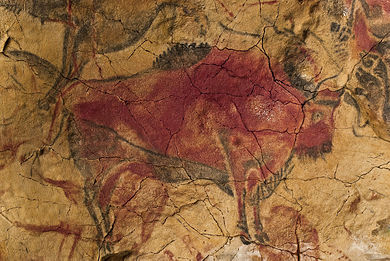
Bay of Santander
1963
I stood there
on the sea wall
calling out to the dark
“Help!” “Save me!”
Moon hid her face
behind veiled clouds.
All hope denied
I called out to the tide,
outgoing, to take me
with it, out to sea,
past the island
and the lighthouse,
out to where the waves,
stronger than anything
I ever knew, would thrust
strong fingers under my arms
and lift me up,
then drag me down,
so I could finally rest
in peace, and drown.
Comment:
This painting is called Picking at Scars. Some scars run so deep that they are always there. When they itch, you scratch them, and they bleed afresh. The scar of loneliness is one such scar. Alone, in a foreign land, learning their language, the culture, their customs, feeling not just unaccepted, but unacceptable, and the moon at night shining on a land, a bay, a city, to which you know, deep in your heart, you will never belong. That loneliness walks with me still and, sixty years later, it still leaves me desolate.










